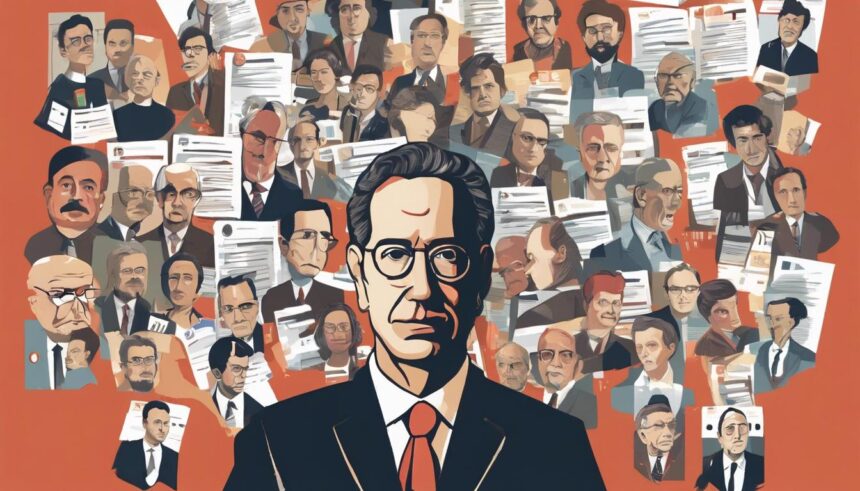In a powerful show of international solidarity, leading journalism and free expression organizations have united to defend Gustavo Gorriti, a key figure in investigative journalism in Latin America, against legal threats aimed at silencing his reporting on corruption.
In a striking assertion of solidarity, the National Press Club, together with a coalition of leading journalism organizations and freedom of expression advocates, has publicly voiced its concern over the looming legal threats against Gustavo Gorriti, a distinguished Peruvian investigative journalist renowned for his work in unveiling corruption across Latin America. This development sheds light on the growing challenges faced by journalists worldwide, particularly in regions where the press is under siege from political, legal, and sometimes dangerous personal attacks.
Gustavo Gorriti, a figure celebrated for his fearless reporting and significant contributions to investigative journalism in Latin America, has come under legal scrutiny from the political circle he has frequently critiqued. The complaint filed against him alleges involvement in a criminal conspiracy with prosecutors, a claim that if pursued, could see Gorriti facing pre-trial detention. This marks a worrying escalation in attempts to stifle press freedom in Peru, reminiscent of the authoritarian tactics highlighted by Nobel Peace Prize Laureate Maria Ressa in her memoir “How to Stand Up to a Dictator.” The case against Gorriti appears to follow a similar pattern: relentless slander followed by controversial legal maneuvers, aimed at silencing dissenting voices.
The importance of Gorriti’s work and the gravity of the situation are underscored by the support rallying around him, with organizations such as Freedom House, PEN America, and the International Consortium of Investigative Journalists, among others, co-signing the National Press Club’s statement. This collective voice not only highlights the risks faced by Gorriti but also casts a broader spotlight on the precarious state of press freedom and the vital role journalists play in combating corruption and abuses of power.
Gorriti’s investigative efforts have not only brought to light the interconnected webs of corruption among Latin America’s elite but have also emphasized the indispensable role of independent journalism in fostering transparency and accountability. His predicament exemplifies the challenges confronting journalists who dare to expose uncomfortable truths, facing retribution from those they investigate. The legal threats against Gorriti signal a distressing attempt to criminalize journalism, a move that could have chilling effects on press freedom in Latin America and beyond.
The response from global press freedom organizations underscores the recognition of journalism as a pillar of democracy, vital in the pursuit of an informed and engaged citizenry. The stand taken by the National Press Club and its affiliates reflects a broader commitment to defending journalists against undue pressures, signaling the international community’s resolve to uphold the principles of a free and independent press.
As the situation develops, the international gaze remains fixed on Peru, awaiting the outcomes of this confrontation between journalistic integrity and political power. The case of Gustavo Gorriti serves as a poignant reminder of the ongoing struggles for press freedom, the courage of journalists in the face of adversity, and the collective efforts required to protect the rights of the press across the globe.




